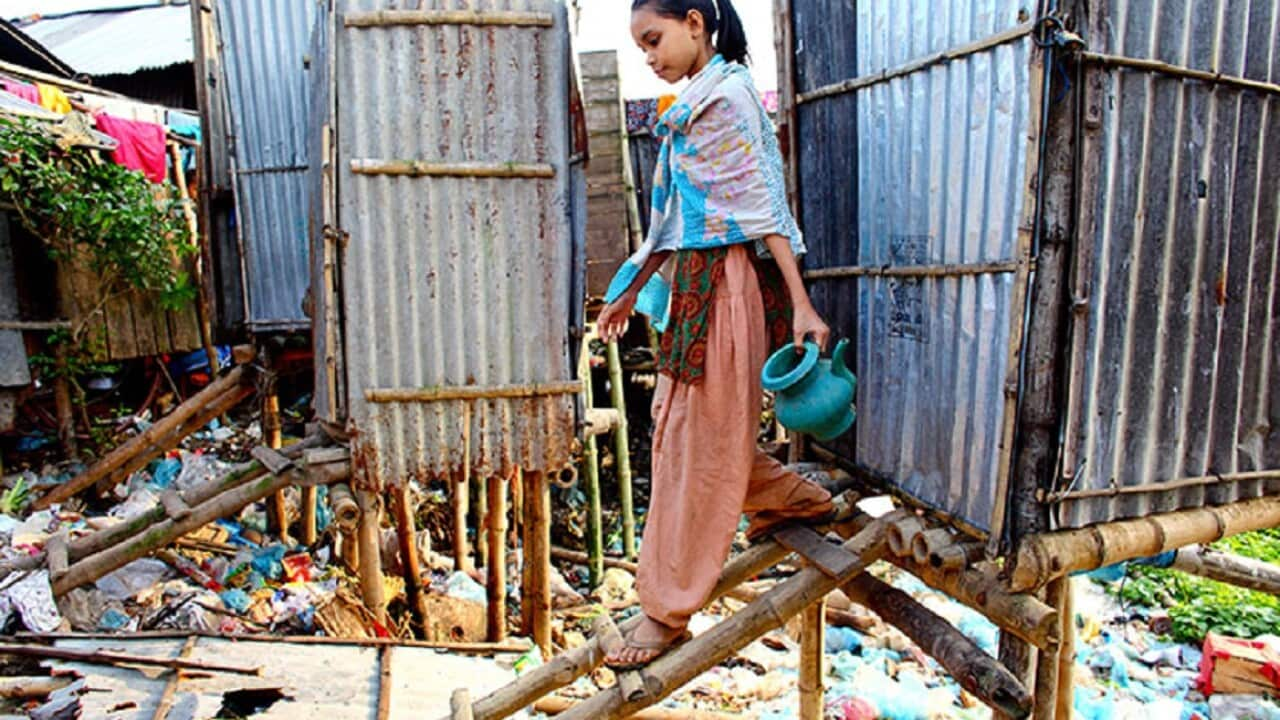No one should die for lack of access to a toilet. Even though it’s probably the first and last place we visit each day, for most of us in Australia our toilet is not much more than an afterthought. However, this flush and forget mindset isn’t the norm for nearly one in three people. For the 2.3 billion people without access to improved sanitation, where and when they’re going to be able to go to the toilet, or if the toilet they use is going to make themselves and their family sick, is never far from the forefront of their mind.
November 19 is World Toilet Day. Even though a global day dedicated to toilets sounds like a joke, it’s deadly serious. So let’s take a moment to reflect on the importance of the humble toilet in allowing us to live healthy, productive lives, and to motivate action to ensure that everybody has access to one.
The importance of the day and its aims are underlined by the impacts of poor sanitation. At its most serious, poor sanitation is a killer. Every year diarrhoeal diseases caused by dirty water, poor sanitation and hygiene kill around 315,000 children. The children that survive repeated bouts of diarrhoea can end up suffering malnutrition, stunting their mental and physical development and in turn harming their future prospects.
We’ve seen firsthand the difference access to a toilet makes, particularly in the lives of women and girls. For women like Juliana in Timor-Leste, who expressed how her children no longer get sick since her family built a pour-flush toilet. Or adolescent girls like Georgina in Papua New Guinea who have benefitted from having a new toilet and shower block installed in her school. Georgina can now wash and change at school when she has her period, and no longer has to leave school early or stay home altogether.
We've also seen the shifts in attitudes that take place when women are actively involved in designing, building and maintaining this infrastructure. Women and girls are more confident, demanding increased recognition for their contributions, they receive greater respect from men, have an increased voice at the community level and a have more diverse and higher status roles available to them. Better gender relations and advancement of women is good for everyone.
Globally there is now a clear opening to scale up these stories of change. Last year, 193 countries came together under the banner of the United Nations to agree the Global Goals for Sustainable Development. The goals set out a framework to end poverty by 2030. Goal 6 calls on all countries to ensure everyone has access to a toilet, safe water to drink, that water resources and human waste are sustainably managed and that water-related ecosystems are protected.
Goal 6 presents us with a major opportunity. We can save lives and lift millions of people out of poverty with improved sanitation services. Unlike some other challenges the world faces, the solutions are already known and doable. Since 1990, 2.1 billion people have gained access to improved sanitation.
Australia has a clear role to play in achieving Goal 6. We have the perfect platform to do this - the UN and World Bank’s High Level Panel on Water, which was set up earlier this year with a mandate for kicks-tarting completion of Goal 6. It’s for this reason that we at WaterAid have partnered with Global Citizen to launch the new #Gofor6 campaign.
Already, in the last few weeks, global citizens have sent 74,000 emails directly to Prime Minister Turnbull, and the other 9 members of the panel, asking them to set a strong example for other leaders to follow on this critical issue. Some have already responded. At the Global Citizen Festival, which took place in New York during the UN General Assembly, and in front of a crowd of 60,000 Global Citizens, the Dutch Minister of Foreign Affairs Bert Koenders pledged $100 million per year for at least three years to ensure 50 million more people will have access to clean toilets, and 30 million more people will have clean drinking water by 2030.
Australia has an important role to play as a leader in the Asia Pacific region by committing to investing further in water and sanitation projects. Over the next two years the High Level Panel on Water is tasked with motivating action and mobilising finance towards achieving Goal 6. Prime Minister Turnbull is one of ten world leaders on the panel. As part of Australia’s contribution to the work of the Panel in reaching Goal 6, we are asking for Australia to commit to directly reaching 50 million people with sanitation, hygiene and water through our aid program by 2030.
Already the Prime Minister has committed to invest $100 million over 5 years to improve access to safe and affordable water, and improved sanitation and hygiene practices as part of the new Water for Women initiative, announced at the UN in September. While this is a welcome announcement, there is more Australia can and should do given the impact of poor sanitation and hygiene on undermining human development.
Further funding increases are needed, but more importantly we need to see the Australian Government use its diplomatic influence to catalyse action on sanitation in our region.
Countries such as Malaysia, Thailand and South Korea have achieved universal sanitation access within a generation. Common to all these countries was a leadership with a vision of each and every one of their citizens having access to a decent toilet, and the will to follow through to make that vision reality.
The timeline for achieving Goal 6 is ambitious, but achievable. Political commitment from Australia would put improving sanitation on the agenda of leaders in our region, catalysing action and ensuring that no-one suffers because they lack something as basic as a decent toilet.
Rosie Wheen is Chief Executive of WaterAid Australia, and Michael Sheldrick is Global Policy and Advocacy Director of Global Citizen.






